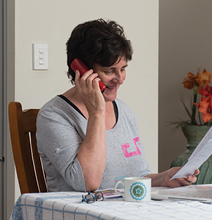Employment & Participation
We call for greater recognition of the potential and experience of older people in all their diversity in the labour market and in society. We cover policy areas such as employment, lifelong learning, volunteering and participation.

The context
The positive impact of older people on society is clear. Older people are an enormous resource for the social sector, engaging in many voluntary activities and sometimes forming the backbone of the functioning of large NGOs as well as small local clubs. They often have higher rates of participation in elections, and their consultation on all issues that affect them is a prerequisite for the development of well-designed and sustainable policies. In the labour market, the experience of older people is an undeniable asset, while the diversity of ages in companies encourages innovation, multi-skilled team and the strengthening of the talent pool. More broadly, their involvement and participation undeniably contribute to healthier ageing, with better mental health and self-esteem.
The right to live, participate in society, work and study must be guaranteed regardless of age.
Tackling the problems that hinder older people’s participation in the labour market and society means first and foremost recognising and supporting their full potential. It also means adapting policies to different individual circumstances and contexts through a lifelong and person-centred approach.
Our key messages
We aim to tackle the barriers older people face in the labour market and to fully participate in society.
We seek to:
- Change the policy narrative on ageing at work by promoting age diversity in companies/organisations
- Adopt employment policies based on a life-course and person-centred approach to better support older people in the labour market.
- Multiply adequate, accessible and affordable lifelong learning opportunities for adults, including beyond pensionable age
- Better support the volunteering sector and create a formal status for volunteers linked to individual benefits, such as insurance coverage, partial compensation or tax-deductibility
- Empower older persons to raise their voices about issues that concern them, such as in including systematically and statutorily a representative for decision-making processes
- Adopt an intersectional approach to meet the needs of the population in its diversity
Some Figures
was the employment rate of people age 55-64 in Europe in 2021.
are women. A gender imbalance that increases with age and has an impact on their work.
of people aged 55-64 participated in education and training in 2016.
of people aged 55-64 have at least basic digital skills, and 24% of 64-74 years old (2019 figures).
Useful links
- 2023 AGE Barometer on sustainable labour market and quality working lives
- AGE Annual Conference on sustainable and quality working lives
- 2021 AGE Barometer on life-long learning and participation of older persons in Europe
- AGE position on lifelong learning at all ages and the individual leaning accounts (Council recommendation)
Contact

Sarah Loriato
Policy Officer on Employment and European Parliament Liaison
Related news
On 2 October, to mark the International Day of Older Persons 2024, MEP Idoia Mendía, Marina Kaljurand and Marcos Ros...
The Business of Ageing Project highlights the potential economic contribution older people will make to New Zealand over coming decades....
Prior to the European Parliament elections taking place in June 2024, we joined the discussion organized by the International Longevity...
Our positions
Credit: David Tett AGE position paper explores the holistic concept of ‘work-life integration’ that we are advocating for. Unlike the...
Related projects
Other resources
On 2 October, to mark the International Day of Older Persons 2024, MEP Idoia Mendía, Marina Kaljurand and Marcos Ros...
The Business of Ageing Project highlights the potential economic contribution older people will make to New Zealand over coming decades....
Best Friends Against Ageism is an EU project aimed to address the isolation of older adults by developing an innovative...
Get involved
Together we can make a difference towards more age equality in Europe. Let’s join our forces!













